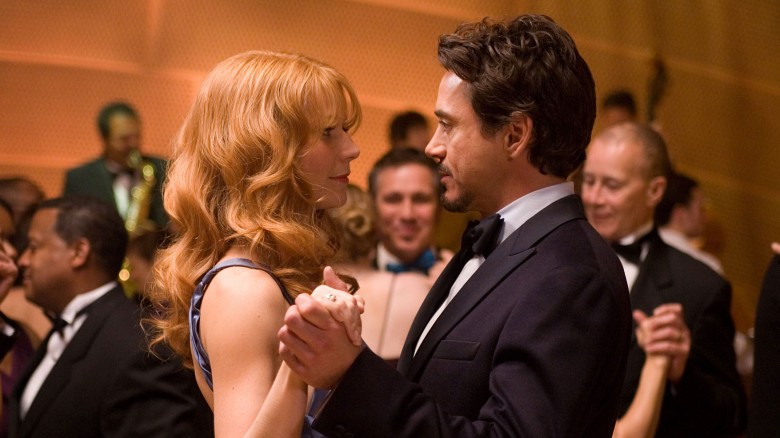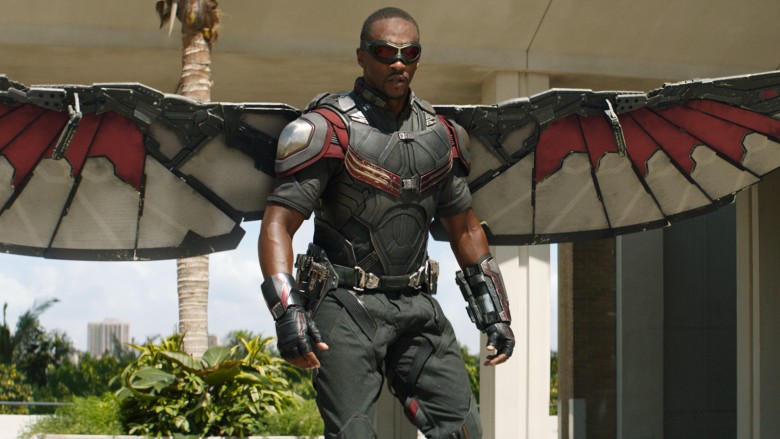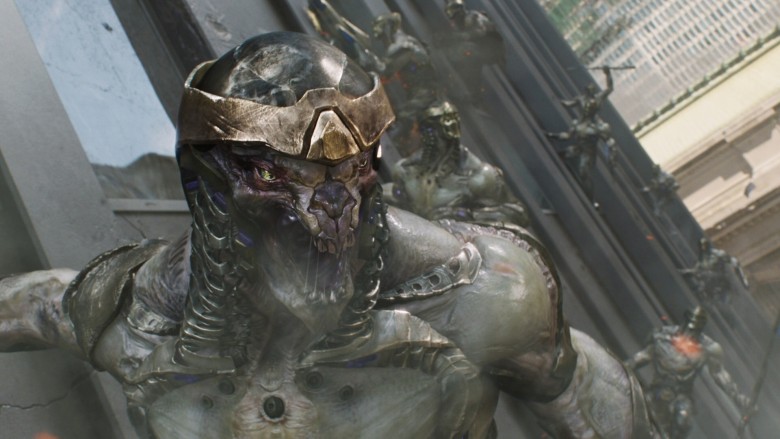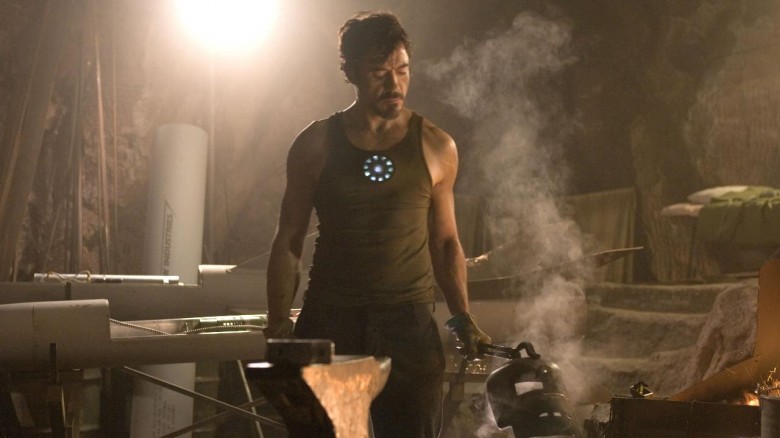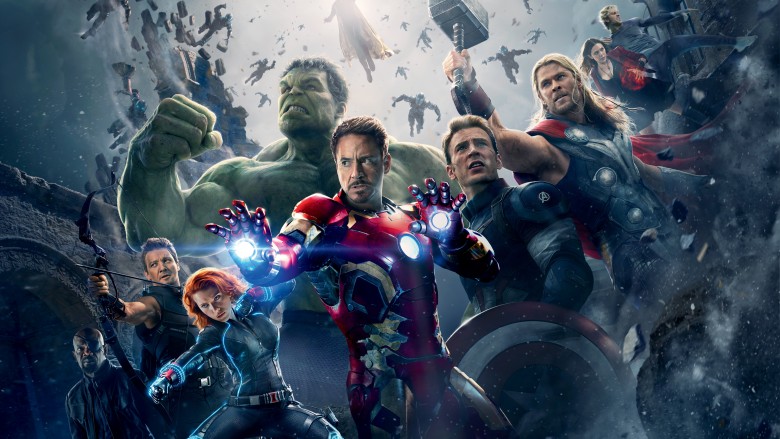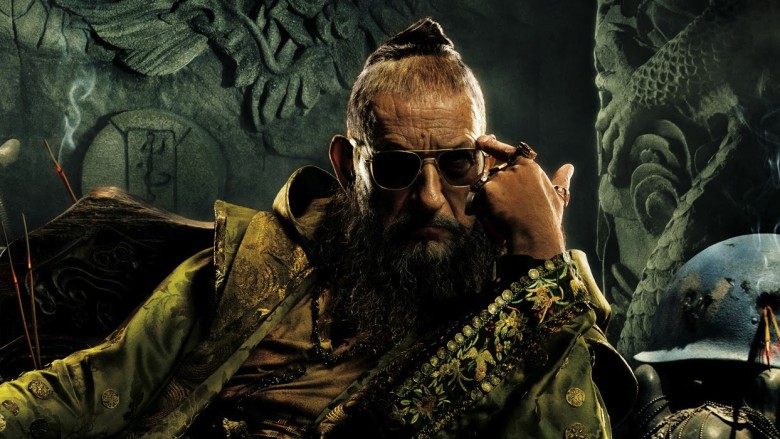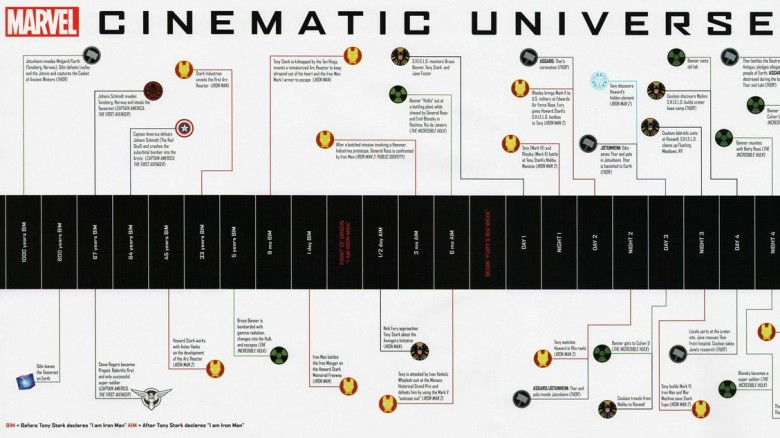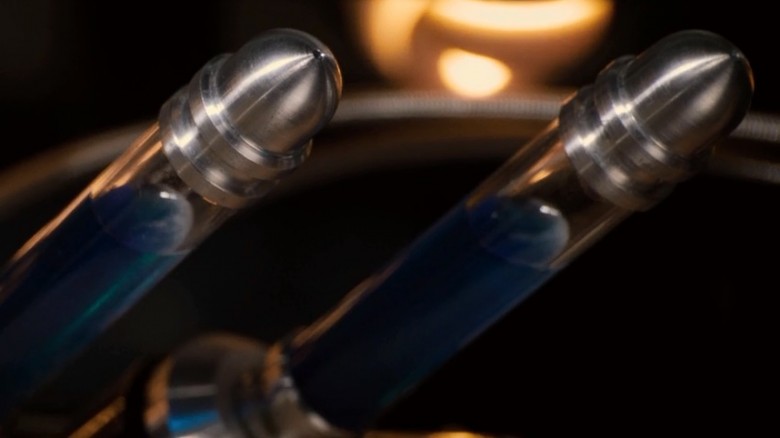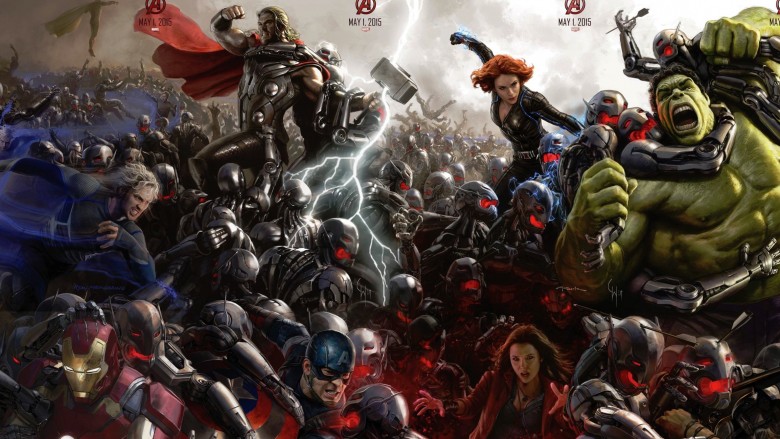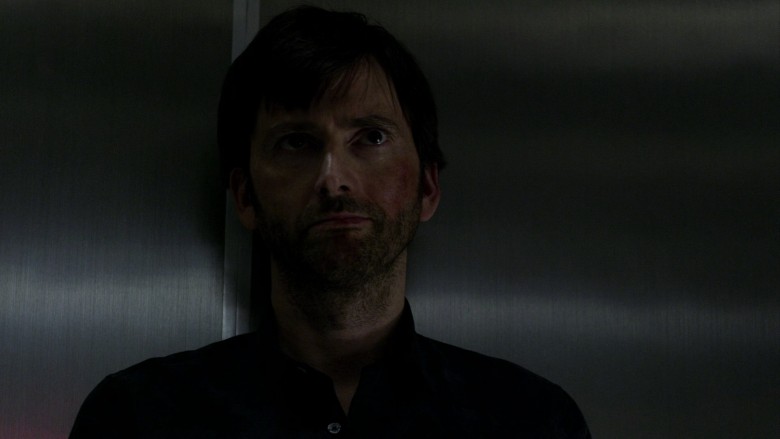Things About The MCU Most People Don't Admit They Like
There are plenty of things most people openly love about the Marvel Cinematic Universe. For instance, we can all agree on the awesomeness of Robert Downey Jr., Chris Evans, and even young Tom Holland. The MCU boasts an awesome cocktail of acting talent, action scenes, and witty humor. However, there are many things that fans like to complain about, and while there are definitely some valid criticisms of the MCU, there are many cases where the geeks doth protest too much, and the things we criticize are our guilty pleasures.
The romantic relationships
It seems like you can't throw a rock (or even an Infinity Stone) without finding someone complaining about the romantic relationships within the Marvel Cinematic Universe. These criticisms often center on the idea that the portrayal of women within the MCU is weak. For instance, Pepper Potts starts out being subservient to the whims of Tony Stark, including escorting his one-night stands out of the house. And Jane Foster, despite being a big-league scientist, is reduced to a giggling fan girl when she sees Chris Hemsworth.
However, the truth is that the romantic relationships have been some of the absolute best parts of the MCU. While there's some truth to the examples above, Gwyneth Paltrow's portrayal of Pepper Potts makes it absolutely clear that she knows how to put Tony in his place, leading to sparkling chemistry between them. And Natalie Portman's Jane Foster sells the pure awe of dating an actual, living god.
There are examples all over the place:. The romance of Captain America and Peggy Carter transcends time, making audiences cheer and cry in equal measure. The suave flirtation of Black Widow with the confused Bruce Banner was one of the best parts of Age of Ultron, while the steamy and passionate exploits of Luke Cage and Jessica Jones explored superhero sex with intimacy and humor. Face it, tiger: the MCU hit the jackpot when it came to their focus on romantic relationships.
The sidekick problem
While the romantic relationships of the Marvel Cinematic Universe are often criticized as unnecessary, the supporting characters get even more flack. Oftentimes, it seems these characters are reduced to playing the straight man (or woman) to the zany protagonist. This is especially apparent with the early appearances of James Rhodes in the first Iron Man, or the more recent appearance of Wong in Doctor Strange (and Marvel's tendency to make people of color a sidekick is its own issue). And when the sidekicks aren't simply there to reflect the glory of the protagonist, they often force humor into scenes that don't really need it. The poster girl for this is Jane Foster's buxom assistant Darcy, whose superpower seems to be making you wonder how she ended up in these movies as an actress, much less ending up as an assistant to super science-whiz Foster.
However, the sidekicks fulfill a variety of important roles in the MCU that most of us adore. First off, they are an integral part of the world building: what always made Marvel Comics feel real was a lived-in universe filled with a diverse supporting cast, and characters like the elder Ant-Man and Howard Stark remind us how everything is connected in the MCU. Second, today's sidekicks are tomorrow's heroes, which is illustrated perfectly by Rhodes (who later becomes badass Avenger War Machine) and Bucky (who gained a haunted past and non-haunted bionic arm as the Winter Soldier).
Finally, the blunt truth is we need the straight man to let the comedy of characters like Tony Stark and Spider-Man shine through, as they serve as audience surrogates to represent how we ourselves might act around our favorite heroes.
The army of faceless goons
Sometimes, it's robot drones, as in Iron Man 2. Otherwise, it's robotic drone aliens, like in Avengers. Other times, it's just evil robots, like in Age of Ultron. And if we're really lucky, Marvel throws in some non-robotic drone-like enemies, like in Guardians of the Galaxy. These kinds of bad guys serve no real role except to let our heroes cut loose with spectacular violence against targets we don't feel guilty about seeing utterly trashed.
However, this leads to some of the coolest moments in the entire MCU. Seeing Iron Man and War Machine take on a robotic swarm of drones was an absolute highlight of the otherwise lackluster Iron Man 2, and watching Hulk cheerfully careen through alien invaders in Avengers was an absolutely unforgettable series of scenes. While Marvel could develop their main villains a bit more, the truth is that nobody comes to a Marvel movie to see super-complex goons—we go to see those goons get wrecked in creative ways. And all of this is pretty solidly rooted in the world of the comics, where armies of robots, ninjas, and Hydra soldiers make for pretty much just another Wednesday.
The origin stories
Most veteran fans of superhero movies and the comics they are based on bemoan the onscreen origin story. Part of this comes from sheer repetition, as we can only witness the deaths of Spider-Man's uncle and Batman's parents so many times before we wish a random mugger would kill us instead of these characters. And part of it comes from impatience—we want these movies to get to the good stuff, so spending half of the first movie to give us an origin story seems like wasted potential.
However, Marvel has a track record of providing really amazing origin stories.
For instance, watching Tony Stark's capture, imprisonment, and liberation is every bit as thrilling (if not more so) than watching his fight with Obadiah Stane at the end. And watching Steve Rogers develop into the man we know and love helps us understand who he truly is underneath all of that muscled bulk, giving all of his later scenes additional depth. Plus, the MCU has been experimenting with different ways of providing origin stories over the years. The Incredible Hulk jammed his origin into the opening credits, for instance, while Black Panther and Spider-Man were simply thrust into an existing narrative in Civil War.
And in all of these cases, watching the early development of the character remained entertaining and engaging. Maybe Tony Stark could give Warner Bros. some pointers about doing Batman's origin in a fresh and engaging way before we have to see it on the big screen yet again?
Lack of tension
In Marvel movies, the stakes only SEEM high—heroes are fighting to save a city, a world, and sometimes, an entire galaxy, but it's tough to really ever feel like our heroes are in trouble. People walking into a movie labeled Iron Man or Thor or Captain America can typically rest assured that the title character is going to triumph, and it's understandable to think this drains the drama.
However, while we know that the good guys will prevail, the fun is watching these heroes (often flawed and human, like us) figure out how they are going to do it. This is why good filmmakers change up the challenges and circumstances our heroes face, such as watching Iron Man break into the Mandarin's base without his suit, or watching Thor try to fight without his magic hammer.
We don't want to be on the edge of our seats about the hero's success or failure in a light action movie. We want to watch superhero spectacle and wonder while munching our popcorn, and the MCU scratches that itch remarkably well.
The Mandarin
The Mandarin's portrayal in Iron Man 3 was a point of contention for many fans. In the comics, the Mandarin is Iron Man's archenemy, a man able to use the magic of ten rings to combat the super science of Tony Stark. In Iron Man 3, the Mandarin is initially presented as a terrorist bombing a variety of locations, but he is revealed to be a drunken actor simply hired to create a bizarre terrorist persona to distract America from the real villain. Some fans were outraged by this, feeling Marvel not only whitewashed a major character (which the MCU has been guilty of from time to time) but turned him into a silly joke.
Here's the thing, though: it's a pretty funny joke. Ben Kingsley's "Mandarin" (who prefers to go by "Trevor") and his silly performance works perfectly with Marvel's playful sense of subverting audience expectations, which is something that James Gunn elevated to an art form with Guardians of the Galaxy. The reveal also plays to the broader politics of this particular movie, which dealt with the notion that selective propaganda can mix with a pervasive fear of terrorism to blind the country to what is truly threatening it.
In addition to having a playful spark with Robert Downey Jr., Ben Kingsley's Mandarin helps Tony Stark realize that we are defined by our choices rather than who we are or what people think of us, which makes the final "I am Iron Man" so poignant ... and it's all thanks to the guilty pleasure of "The Mandarin" himself.
The complex connections
While Marvel didn't invent the idea of a shared universe, they certainly turned that idea into a household one. From the moment Nick Fury showed up inside Tony Stark's home, it was clear the MCU was going to become a complex and connected world. However, some people are concerned that those connections have truly become convoluted, with recent movies like Captain America: Civil War and the upcoming Avengers: Infinity War making it clear that the days of the standalone hero adventure are numbered. This means someone who might have been a casual fan of one or two characters and only went to those particular movies is now required to have a working knowledge of dozens of heroes, villains, and ongoing plots, making the movies as indecipherable as their comic source material has sometimes been.
However, something even the haters have to admit is that the connections between characters and movies make it all that much stronger. You didn't have to be a Spider-Man superfan to realize his appearance in Civil War was a badass, crowd-pleasing moment. Similarly, you don't have to be a scholar of Tony Stark and his family to realize that all of the surprising places that his father Howard Stark pops up helps the universe feel cohesive.
Perhaps more importantly, it makes the universe feel lived-in and real. If supervillain threats regularly pop up (and the movies make it clear that they do), it would be weirder if none of these characters ever ran into each other or had connections to each other's world. So, while it may be fun to talk about the cluttered cluster of the MCU, we all like it from the bottom of our Arc reactor-powered hearts.
They are formulaic
Marvel tales almost all involve a relatively normal person who is thrust into an adventure, has an older mentor, embraces a new identity, and overcomes a variety of trials before nearly sacrificing themselves to achieve victory. This covers the MCU formula pretty well.
But the MCU didn't invent this formula: it is, in fact, thousands of years old, and there's a reason it has endured so long.
The description above is The Hero's Journey, an idea put forth by Joseph Campbell that posited that all of our major fictional heroes undergo the same basic path. Thus, while the description above applies wonderfully to almost every superhero debut film, it applies equally well to the Greek epic The Odyssey, the English epic Lord of the Rings, and the American epic that is Star Wars. We are culturally primed to enjoy this particular formula, and having a formula doesn't mean the movies can't be diverse and entertaining. And, again, Marvel has become bolder about inverting the formula, teasing the audience with the kind of movie they expect and then delivering talking trees and raccoons. The truth is, while no one likes to say they enjoy formulaic movies, Marvel is sitting on a small mountain of cash that says otherwise.
So many characters
Because of the interconnected nature of the Marvel Cinematic Universe, characters just keep piling up. Even fans who primarily want to follow one or two heroes get drawn in and must figure out how to tell their Mantis from their Mandarin from their Malekith. This leads to the criticism that Marvel simply has too many characters for casual fans to keep up with ... something that, at best, is annoying to the viewer and at worst detracts from the kind of character-driven stories that originally defined the MCU.
However, the secret upside we understand is that viewers simply have a choice. Nothing except rabid fandom compels someone to watch every single movie, television show episode, and tie-in comic that comprises the MCU. In reality, most people end up simply watching the adventures of the characters they care about. Having more characters onscreen simply means having more characters fans can relate to, allowing fans who might not have instantly fallen in love with Iron Man to become drawn in by newer characters such as Black Panther, Scarlet Witch, or Spider-Man.
And speaking of Spider-Man, his Civil War appearance cements the undeniable reason you can't really have too many characters: as long as it is done right, it never stops being fun to watch characters use their superpowers together in unique and creative ways.
The TV shows don't connect to the movies
One of the most unexpected things about the Marvel Cinematic Universe is how much of a hit their TV shows have become. While Agents of S.H.I.E.L.D. started out rocky and improved later and Agent Carter impressed critics (but not enough viewers), Netflix has blown everyone away with series such as Daredevil, Jessica Jones, and Luke Cage. The quality and popularity of these shows and characters, however, has made some people disappointed that Marvel seems determined to always keep their film and television universes separate. Whether it's a matter of schedules not syncing up or simply giving movie writers and directors one less thing to worry about, it looks like we will never see the cinematic Spider-Man square off against the kingpin, or see how Jessica Jones reacts to her comic book best friend Captain Marvel.
Secretly, however, this is a good thing.
For better or for worse, Joss Whedon's Avengers cemented the kind of MCU tone that Iron Man director Jon Favreau was going for. Most of the time, the movies are light action romps with a lot of humor and only tiny doses of sensuality. The television side of the MCU, as presented by Netflix, gets to fully bask in being the darker, sexier side of the MCU. We get to see Jessica Jones and Luke Cage explore the passions and pratfalls of superhero sex, and we get to see explorations of race and violence (via shows like Luke Cage and Daredevil) that would just not fly in mainstream, family-friendly MCU movies. In fact, it's safe to say we will never see the full extent of villainous evil on the big screen that we saw with Jessica Jones villain Killgrave. So, keeping TV and film sections of the MCU separate helps us as fans enjoy the entire spectrum of superhero drama.

